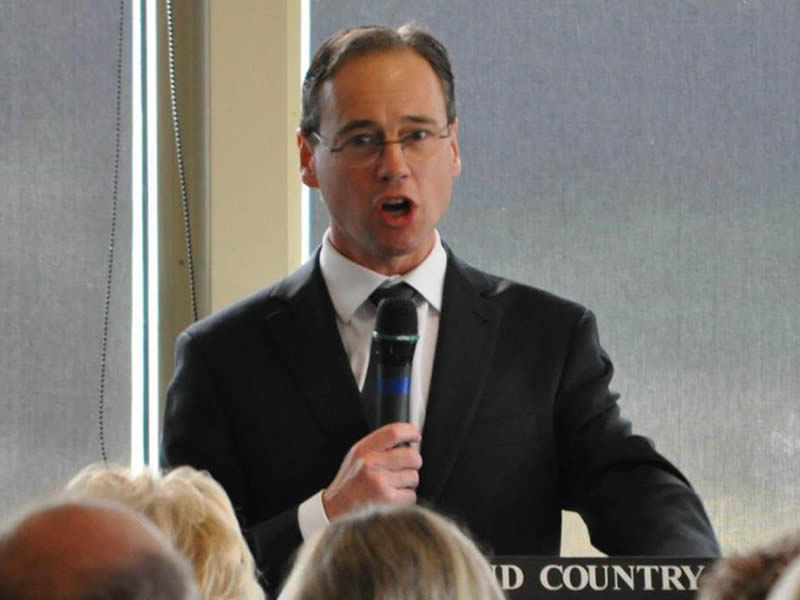Federal Health Minister Greg Hunt has announced $79 million in grants for three organisations to help develop new medical devices, medicines and digital health technologies, with half the money going to a venture capital firm focused on early-stage biomedical discoveries.
The organisations receiving the grants are ANDHealth, a provider of accelerator, incubator and commercialisation programs for digital health technology companies; the Medical Research Commercialisation Fund (MRCF), a life science venture capital fund which is run by Brandon Capital Partners; and MTPConnect, the government funded not-for-profit industry growth centre aiming to accelerate the medical technology, biotechnology and pharmaceutical sector in Australia.

The funds come from the Medical Research Commercialisation initiative, which is part of the Medical Research Future Fund – the federal government’s $20 billion 10-year investment in Australian health and medical research.
MRCF received $39.5 million in total, with $19.75m to support preclinical medical research or medical innovation projects with commercial potential and the other $19.75m to support early clinical development of novel drugs, or novel uses for existing drugs, with commercial potential. The other two companies each received $19.75m.
MRCF chief executive Dr Chris Nave said his company had already helped commercialise numerous Australian research findings using investment capital.
“For every 100 opportunities brought to us, only four pass the risk assessment for commercial investment. This doesn’t mean the remaining 96 are bad ideas and in many cases, it is simply because they are too early in their development and haven’t yet generated key supporting data,” Dr Nave said.
“This funding will allow us to support many more ideas, earlier and we will provide both capital and commercial expertise to guide them through to the point where they are ready to be translated into clinical development and commercialisation, creating jobs and income and ultimately benefitting patients.”
ANDHealth said the funding would support up to 25 high-growth-potential SMEs, which would be selected via a competitive process and will receive up to $1m of investment from the ANDHealth Digital Health Accelerator Fund. They will also have access to a dedicated ANDHealth support team, a c-suite industry advisory panel, and specialised services from pre-vetted suppliers.
“This funding represents a significant milestone in the development of Australia’s digital health industry with the establishment of the first dedicated fund providing significant capital investment, alongside a proven program of global expertise and support, for Australia’s most promising digital health companies,” ANDHealth’s CEO Bronwyn Le Grice said.
“Currently, the median amount of capital raised by Australian digital health companies is approximately $250,000. This program will be transformational in providing investment of up to $1m per company, alongside substantial support and expertise to accelerate the scale-up of these life-changing technologies.”
The types of technologies which will be supported under ANDHealth’s program include technologies that use computing platforms, connectivity, software and sensors, either alone or in combination with physical products, to treat, diagnose, cure, mitigate and/or prevent disease or other conditions.
Health Minister Hunt said Australia’s researchers were world-leading, however many of their great ideas do not always receive the support needed to make the transition into practice. The Medical Research Commercialisation initiative aimed to address this gap “to help great ideas become products, which benefit patients in Australia and around the world”.
“The initiative has already supported implementation of new products that are changing clinical practice and improving lives,” Minister Hunt said.
“They include a novel device that improves the success rate of breast cancer surgery and an implant that promises to treat glaucoma for six months from a single injection, removing the need for daily drop therapy.”
Minister Hunt has also announced two fellowships under the Medical Research Future Fund’s Researcher Exchange and Development within Industry initiative.
Dr Ewan Millar from NSW Health Pathology will undertake a 24-month part-time project with New York-based digital diagnostics company Paige, working with worldwide project teams spread across three continents to develop skills in the application of Artificial Intelligence (AI).
Dr Miller will focus on the application of deep learning AI to breast cancer biomarker development to improve behaviour predications and treatment response.
Meanwhile, Dr Cindy Chia-Fan Shu from Kolling Institute at the University of Sydney Royal North Shore Hospital will undertake a 12-month project with Regeneus, to increase her skills in the translation of science.
Dr Shu will focus on developing assays and models for pre-clinical trials for osteoarthritis treatments and progressing clinical trials and preparing regulatory submissions.
Do you know more? Contact James Riley via Email.


The irony of government handing out grants to the private sector for innovation while their own back yard and approach are in the technology dark ages is stark. Is the project called ‘bringussomethingtogetoutofthismess’ by any chance?